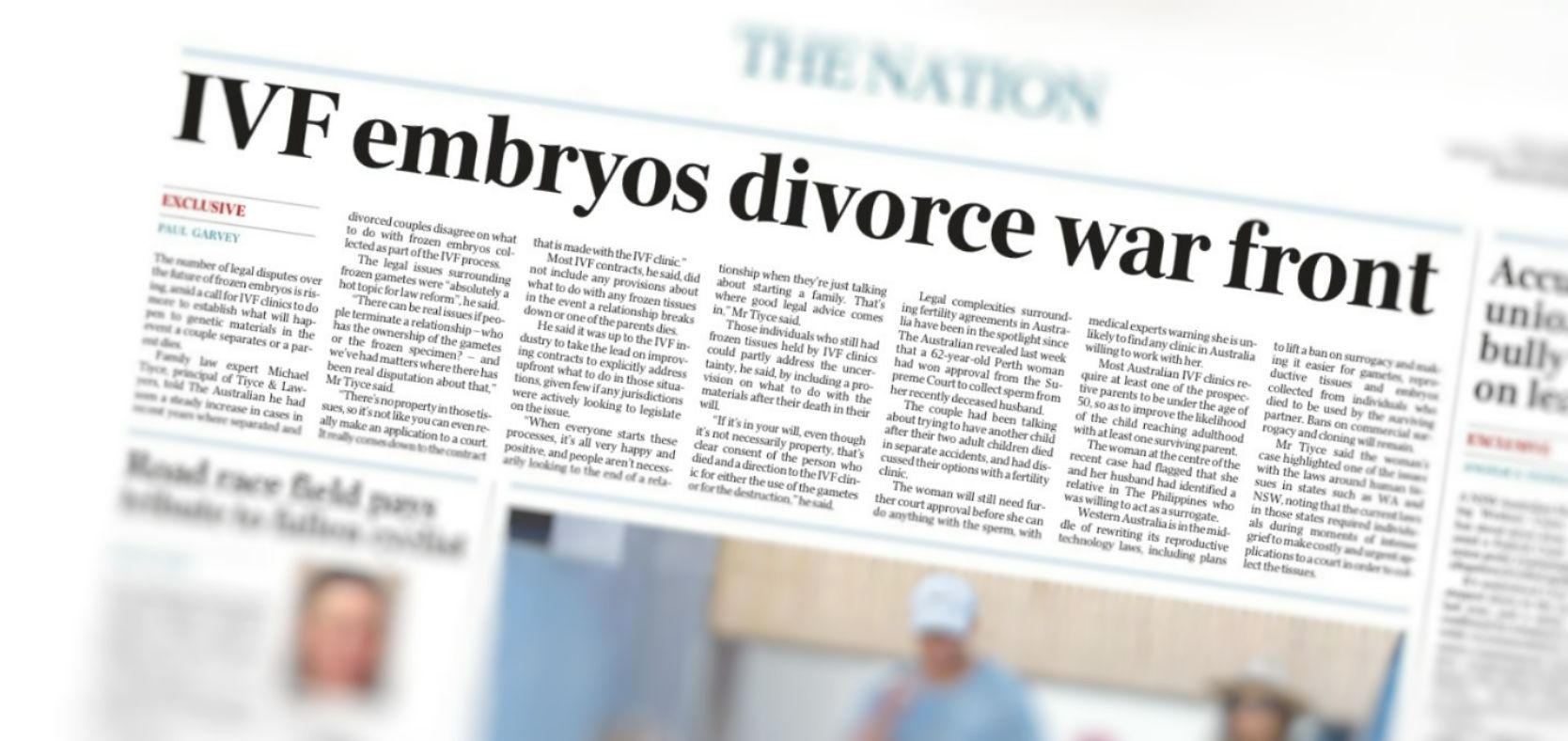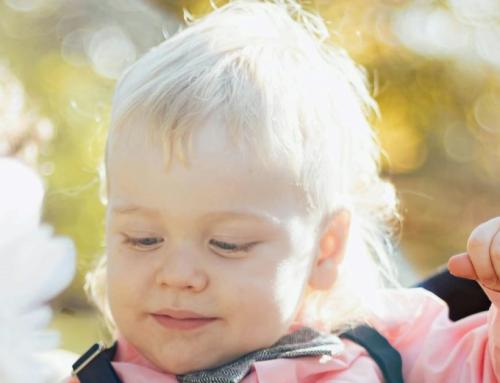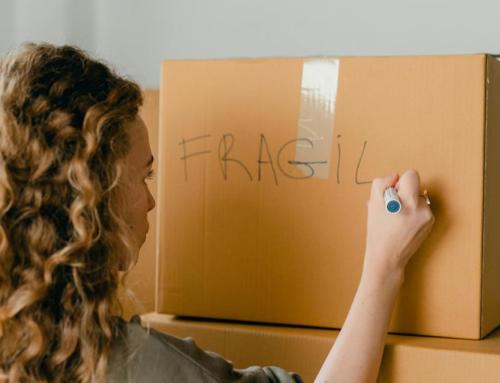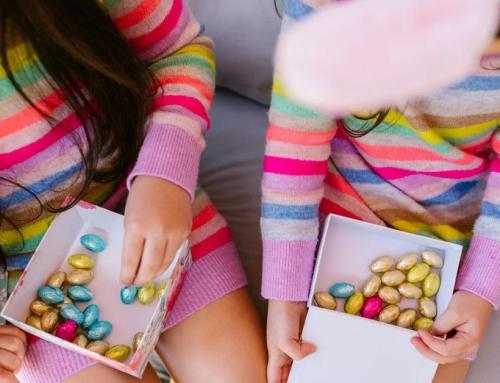Tiyce & Lawyers Principal Michael Tiyce was quoted in The Australian recently in an article about the growing number of legal disputes over the future of frozen embryos.
It’s an area riddled with complexity and the law itself has not kept up with the technology, so getting legal advice prior to undertaking any procedures or signing contracts is vital.
“There can be real issues if people terminate a relationship – who has the ownership of the gametes or the frozen specimen?” – Michael Tiyce
Read the full article on The Australian site or scroll down for the transcript: https://www.theaustralian.com.au/nation/clarity-needed-on-ivf-specimens-in-event-of-separation-or-death-lawyer-says/news-story/c84ff6cbab29c05a69f9793178c9efdf
Clarity needed on IVF specimens in event of separation or death, lawyer says
The legal issues surrounding frozen embryos were “absolutely a hot topic for law reform”, a family law expert said.
By PAUL GARVEY
SENIOR REPORTER
7:21PM JANUARY 7, 2024
The number of legal disputes over the future of frozen embryos is rising, amid a call for IVF clinics to do more to establish what will happen to genetic materials in the event a couple separates or a parent dies.
Family law expert Michael Tiyce, principal of Tiyce & Lawyers, told The Australian he had seen a steady increase in cases in recent years where separated and divorced couples disagree on what to do with frozen embryos collected as part of the IVF process.
The legal issues surrounding frozen gametes were “absolutely a hot topic for law reform”, he said.
“There can be real issues if people terminate a relationship – who has the ownership of the gametes or the frozen specimen? – and we’ve had matters where there has been real disputation about that,” Mr Tiyce said.
“There’s no property in those tissues, so it’s not like you can even really make an application to a court. It really comes down to the contract that is made with the IVF clinic.”
Most IVF contracts, he said, did not include any provisions about what to do with any frozen tissues in the event a relationship breaks down or one of the parents dies.
He said it was up to the IVF industry to take the lead on improving contracts to explicitly address upfront what to do in those situations, given few if any jurisdictions were actively looking to legislate on the issue.
“When everyone starts these processes, it’s all very happy and positive, and people aren’t necessarily looking to the end of a relationship when they’re just talking about starting a family. That’s where good legal advice comes in,” Mr Tiyce said.
Those individuals who still had frozen tissues held by IVF clinics could partly address the uncertainty, he said, by including a provision on what to do with the materials after their death in their will.
“If it’s in your will, even though it’s not necessarily property, that’s clear consent of the person who died and a direction to the IVF clinic for either the use of the gametes or for the destruction,” he said.
Legal complexities surrounding fertility agreements in Australia have been in the spotlight since The Australian revealed last week that a 62-year-old Perth woman had won approval from the Supreme Court to collect sperm from her recently deceased husband. The couple had been talking about trying to have another child after their two adult children died in separate accidents, and had discussed their options with a fertility clinic.
The woman will still need further court approval before she can do anything with the sperm, with medical experts warning she is unlikely to find any clinic in Australia willing to work with her. Most Australian IVF clinics require at least one of the prospective parents to be under the age of 50, so as to improve the likelihood of the child reaching adulthood with at least one surviving parent.
The woman at the centre of the recent case had flagged that she and her husband had identified a relative in The Philippines who was willing to act as a surrogate.
Western Australia is in the middle of rewriting its reproductive technology laws, including plans to lift a ban on surrogacy and making it easier for gametes, reproductive tissues and embryos collected from individuals who died to be used by the surviving partner. Bans on commercial surrogacy and cloning will remain.
Mr Tiyce said the woman’s case highlighted one of the issues with the laws around human tissues in states such as WA and NSW, noting that the current laws in those states required individuals during moments of intense grief to make costly and urgent applications to a court in order to collect the tissues.
Image via The Australian






